Cards are being redistributed in the Turkish Beer Market
“Ever tried. Ever failed. No matter. Try Again. Fail again. Fail better.”
Samuel Beckett
Introduction
Beer is one of the first beverages that humankind produced, such that beer is mentioned even in the epic of Gilgamesh, believed to be circa 2800 and 2500 BC. While the process of becoming human from the primitive human, “Enkidu” who lives with animals and eat herbs is described, it is expressed that Enkidu eats bread and drinks beer. The first large scale brewery in Turkey was Bomonti Brewery that opened in Feriköy, İstanbul in 1890. In 1909, Nektar Brewery was also founded in Istanbul, Büyükdere, as a competitor of Bomonti. The ensuing competition commenced in the beer market, causing both companies loss. Thereupon this loss, Bomonti and Nektar decide to merge, a seemingly wise move. In 1912, they commenced operating under the trademark, “Bomonti-Nektar”. The said company operated as the most important beer producer, for many years; however, with the foundation of the modern Republic of Turkey, it was nationalized in 1934, under the name, “Tekel”.
From the perspective of competition law, the beer market is as colorful as its short history, as summarized, above. In the said market, the sectorial regulations have serious influences on the market structure. Nevertheless, the Competition Board decisions are also some of the most important dynamics in the market. The competition between the two big players of the market, Efes Pazarlama ve Dağıtım Ticaret A.Ş. (“Efes”) and Tuborg Pazarlama A.Ş. (“Tuborg”), have created the most detailed and colorful applications regarding Turkish competition law history.
The reflections of the change in the beer market is seen in competition law practices through the Competition Board decision dated 09.11.2017 and numbered 17-36/583-256. With this decision, Tuborg, who has benefited from the exemption regime, has started to be subject to the same conditions as Efes, as Tuborg’s market share has increased. The individual exemption granted for the exclusive agreements of Tuborg in the closed beer market has been revoked by this decision. Therefore, the possibility of the removal of the exemptions applied in the beer market have arisen in respect of both of the big players.
The Features of the Beer Market Regarding Competition Law
Upon examination of the Competition Board decisions, the market structure and the influence of the regulations of the Tobacco and Alcohol Market Regulatory Authority (TAMRA) are truly effective through the decisions numbered 17-36/583-256. Making the products in the cold beer market available to consumers is important according to the Competition Authority[1]. In this regard, it is important for the producers to have refrigerated coolers present in the points of sale. When producers have more types of products that they can offer cold at the point of sales, they have greater advantage in direct proportion. Therefore, producers have the opportunity thereby to promote their products to consumers. Considering the fact that there is a prohibition on advertising in the said market, having refrigerated coolers in the points of sale is of paramount importance. The Competition Board expresses that especially with the regulations made in 2013, the prohibitions regarding advertisements and sponsorship entered into force and, therefore, the said market passed into the dark market conditions. According to the Board, it is considerably difficult for new undertakings to enter into the market because of the dark market conditions and prohibitions on advertising. Indeed, it is impossible for new players who enter the market to compete with the current producers that are still in the market, and which are known by consumers, without their making any promotions or advertisements.
Furthermore, the Board determined that importation does not constitute sufficiently competitive pressure in the related market. The market shares of the undertakings that operate through importation are low due to the changes in foreign exchange rates, the amount of the special consumption taxes, as well as consumer habits. Moreover, the Board states that Efes and Tuborg, the two biggest producers in the market, have a seriously unutilized capacity.
The Competition Board divides the beer market into two groups regarding points of sale. The closed points of sale (“CPS”) are the points of sale that sell the products to the consumers as closed, such as grocery stores, super markets, or kiosques. Open points of sale (“OPS”) are places, such as hotels, restaurants, or bars where the products are sold to consumers for immediate use, generally with food, music and accommodation services. Various permits are required for the sale of beer in both of these points of sale.
Previous Competition Board Decisions
The Decision of the Competition Board dated 22.04.2005 and numbered 05-27/317-80 (“Decision on Revocation of Exemption”) is related to the exclusivity agreements of Efes and Tuborg that they concluded with CPS and OPS. According to the said Decision, the group exemption provided to both producers’ vertical agreements that include exclusivity, and which are concluded with the said points of sale, is revoked. In this Decision, it is determined that Efes is in the dominant position, that it is difficult to enter into the market as a producer, importation is not at an important level, and there is no sufficient competition in the market. Furthermore, the surplus capacity of Efes and Tuborg, the limitations on advertising in the sector, and the fact that the points of sale are not financially strong, are also taken into account. Hence, in light of these determinations, the group exemptions that had been granted to both Efes and Tuborg’s agreements, including exclusivity, with the points of sale, was revoked.
After almost 3 years from the Decision on Revocation of Exemption, Tuborg applied for exemption again, as it had lost its market shares to Efes. Certain exceptions to the Decision on Revocation of Exemption are stipulated through the Decision of The Competition Board dated 10.04.2008 and numbered 08-28/321-105 (“Cabinet Rule Decision”). However, the most important rule brought by this decision is for CPS with net sales areas of 100 m2 and under; in this regard, if no other alcoholic beverage cooler is available to the consumer, directly, except for the Efes or Tuborg cooler, then the competing products will be allowed to cover up to 20% of the total cooler volume at the point of sale. Thus, Tuborg obtained the opportunity to place its products in Efes coolers at many points of sale.
Nevertheless, in spite of the Cooler Rule Decision, a decrease in the market shares of Tuborg continued. The Competition Board determined, in its Decision dated 18.03.2010 and numbered 10-24/331-119 (“Tuborg Exemption Decision”), that the market shares of Tuborg decreased, the market shares of Efes continued to increase, and the small players in the market pulled out of the market, altogether. For this reason, individual exemption is granted to agreements that include exclusivity, and that will be concluded by Tuborg and its distributors with CPS and the OPS.
In the meantime, there are a great number of Competition Board decisions regarding complaint and exemption applications, including various[2] decisions in relation to the franchise system called “Ekomini” that was carried into effect by Efes. Therefore, this situation indicates that the “quarrel” regarding competition law between the two big players in the beer market, continues to increase. Within this framework, in the Decision dated 03.07.2017 and numbered 17-20/320-142, the Board, on the one hand, rejected the request to grant exemption to the agreements to be concluded between Efes and the CPS, while, on the other hand, upon the request of the same undertaking, it examined the request for revocation of the individual exemption that Tuborg has in the closed beer market.
Decision on Revocation of the CPS Exemption
The Competition Board Decision dated 09.11.2017 and numbered 17-36/583-256 (“Decision on Revocation of the CPS Exemption)was given upon a request made during the exemption application regarding the exclusive agreements that Efes intends to conclude with the CPS; whereas, the exemption request of Efes was rejected, Efes also requested revocation of the individual Exemption of Tuborg that was granted through the Tuborg Exemption Decision. As a result of this examination, the individual exemption that Tuborg benefited from was revoked through the Decision on Revocation of the CPS Exemption.
The Competition Board"s said Decision is a first in terms of revoking the previously granted individual exemption to Tuborg. Indeed, contrary to Efes, Tuborg is allowed to conclude exclusivity agreements in the beer sector. Hence, the Decision on Revocation of the CPS exemption is, in a sense, a return from the Tuborg Exemption Decision made in 2010. In this regard, the Competition Board takes into account the changing conditions in the beer market, and the changed position of Tuborg. This attitude of the Competition Board draws attention as a congruent approach to the dynamic structure of competition law.
When the competition law contest between Efes and Tuborg, which is described in detail, above, is observed, one may see that there are two half-times, much like a football match. The first half-time is the period that lasts until 2010, and in which, from the beginning (with the 2005 Decision on Revocation of Exemption), no competition law protection is provided for both players, but then competition law interventions took place for the protection of Tuborg. Various exemption requests by Efes were rejected in the Tuborg Exemption Decision in 2010, but competition law protection is provided through individual exemptions due to the decline in the market shares of Tuborg.
The second half-time is the period that begins with the Decision on the Revocation of the CPS Exemption, and in which the understanding that Tuborg no longer benefits from competition law protection begins to be dominant. The most characteristic feature of the second-half terms is that the competition between the two players in the market starts to increase. In the near future, commencement of discussions regarding the dominant position of Efes, or the concept of joint dominant position, is on the cards, as well. Furthermore, it is also probable for all of the exemptions to be revoked in the beer market.
Within the framework of the Decision on Revocation of the CPS Exemption, the Competition Board determines that the market share of Tuborg has regularly increased in the last seven years. The Board indicates that the market shares lost by Efes have been obtained by Tuborg, and this has emerged without the exclusivity clauses in the Tuborg CPS agreement. As a matter of fact, pursuant to the sectorial regulations, the agreements with CPS, including exclusivity, are not allowed, in spite of the Competition Board decision. Moreover, the Competition Board considers the fact that Tuborg obtains market shares despite the constriction in the closed beer market, as an indication of obtaining market power by the said undertaking. The Competition Board thoroughly evaluates the increase of Tuborg’s availability rate in the closed beer market starting from 2005, the relative decrease in HHI rates in the said market, and Tuborg’s investments with regard to the CPS.
In the light of these determinations, the Competition Board states that the current market structure is very different from the market structure when the Tuborg Exemption Decision is made, and that Tuborg is in a competitive position with Efes in respect of market share, sales amount, availability rates and financial power. In this scope, the Competition Board revoked the individual exemption granted to Tuborg’s agreements containing exclusivity in the closed beer market.
Conclusion: New Game, New Cards
Beer, which is one of the most ancient beverages that humanity knows, started to be produced by the both Bomonti and Nektar in Turkey. In the progress of time, both companies, instead of being engaged in intense competition, chose to merge their powers through a wise move. This transaction, which can be considered as one of the most undesirable mergers in terms of competition law, caused the removal of the competitive structure in the said market, at the beginning phase.
The Competition Board regularly intervenes in the said market as a result of complaints and exemption applications. Considering the numerous decisions of the Competition Board, which include extensive market analyzes, detailed determinations for open and closed sales points in the market, one may observe that there is a serious struggle between the parties in terms of competition law, as well as two phases that are not unlike a football match. In the first phase, primarily all of the exemptions in the market are revoked, but this situation negatively influences Tuborg’s position in the market. Thereupon, the Board grants Tuborg the right to conclude exclusive agreements. The other player in the market, Efes, has requested exemptions several times; however, the Board has not granted exemptions to the latter.
Nevertheless, the Competition Board signals in a totally different phase through its Decision on Revocation of the CPS Exemption. The increasing market power of Tuborg, which has been “protected” until this time, has caused the loss of this position of the undertaking and its exemption for the CPS. The most important part of this Decision is the determination that places Tuborg is in a competitive position with Efes with regard to market share, sales amounts, availability and financial power. Therefore, in the “second half-time,” placing Efes in the dominant position may no longer be possible. In a similar way, this change may create more than one dominant position, i.e. a joint dominant position. In any case, this market will continue to encompass the possibility to create really interesting and enjoyable competition law applications for a long time to come.
[1] Decision of the Competition Authority dated 09.11.2017 and numbered 17-36/583-256.
[2] The Decision of the Competition Board dated 23.05.2012 and numbered 12-27/795-223 and the Decision of the Competition Board dated 09.10.2013 and numbered 13-57/802-341
All rights of this article are reserved. This article may not be used, reproduced, copied, published, distributed, or otherwise disseminated without quotation or Erdem & Erdem Law Firm's written consent. Any content created without citing the resource or Erdem & Erdem Law Firm’s written consent is regularly tracked, and legal action will be taken in case of violation.
Other Contents

Mergers and acquisitions are among the types of transactions that are subject to intensive scrutiny by competition authorities. As a rule, competition authorities only subject transactions that exceed certain turnover thresholds and result in a change of control to merger…

The U.S. District Court for the District of Columbia (“Court”) issued its memorandum opinion (Memorandum Opinion) on November 18, 2025, in the antitrust case (“Case”) between the Federal Trade Commission (“FTC”) and Meta Platforms Inc. (“Meta”). The FTC alleges that Meta monopolized the market…

No-poach agreements, which have become one of the most prominent concepts in global competition law in recent years, are defined in the Glossary of Competition Terms as “agreements, whether direct or indirect, whereby one undertaking agrees not to make job offers to, or hire, the employees of another...

The Competition Board (“Board”) has broad powers to request information from undertakings. The legal basis for this authority is provided by Article 14 of Law No. 4054 on the Protection of Competition (“Law No. 4054”). Under this provision, the Board may request any information it deems necessary from public...
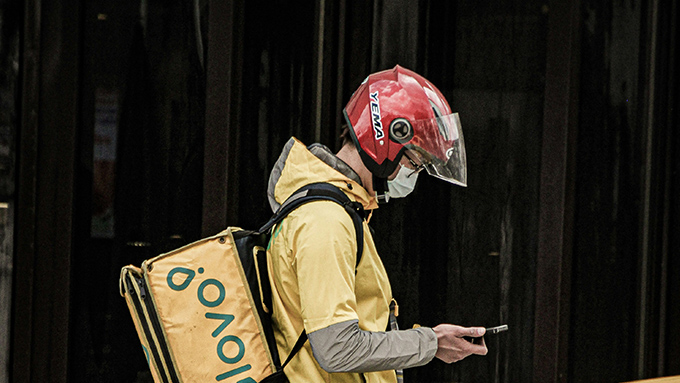
Competition authorities around the world have increasingly focused on labor market infringements under competition law, issuing new regulations and guidance recently. Notable examples include the U.S. Department of Justice and Federal Trade Commission’s joint guidance, the Japanese Fair Trade Commission’s...

Chapter 8 of the General Data Protection Regulation (“GDPR”) sets out the legal remedies available to data subjects in the event of a breach of their rights under the GDPR. Accordingly, each data subject has a right to lodge a complaint with the supervisory authority of the Member State in which they reside, work...

Mergers and acquisitions play a critical role in shaping the competitive structure of the market. Although such transactions can lead to positive outcomes such as the provision of products and services at lower prices, the development of new products and technologies, and improvements in quality, they may also...
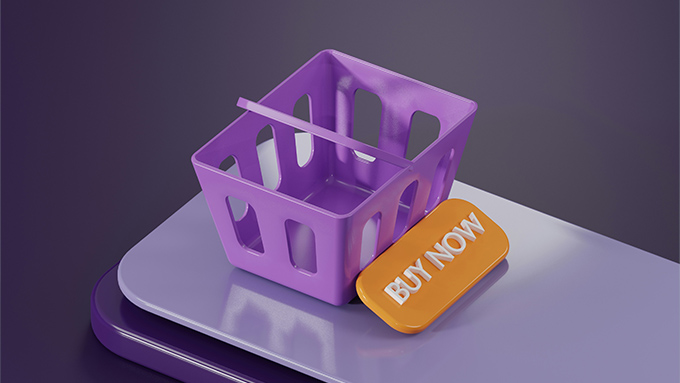
Technology and the opportunities it brings undoubtedly play a key role in strengthening the competitiveness of market players. In this context, pricing algorithms that enable undertakings to monitor publicly available prices and optimize their own pricing strategies have become widely used, especially by digital platforms...

The Regulation on Fines to Apply in Cases of Agreements, Concerted Practices and Decisions Restricting Competition, and Abuse of Dominant Position (“Former Regulation on Fines”), which entered into force upon its publication in the Official Gazette dated February 15, 2009 and numbered 27142, was...

In the past years, the Turkish Competition Board (“Board”) has closely monitored the activities of undertakings operating in the retail sector. As a result of the Board’s record of administrative fines, horizontal type of violations in the retail sector have been highly publicized. Vertical violations such as resale price...

In recent years, numerous automobile manufacturers have announced their goals to reduce carbon emissions, with many brands setting net-zero carbon targets spanning from production processes to the lifecycle of their vehicles. While ongoing debates persist regarding the significantly higher carbon footprint of...

Under Article 15 of Law No. 4054 on the Protection of Competition (“Law No. 4054”), the Competition Board (“Board”) may conduct on-site inspections at the undertakings’ premises when it deems necessary in fulfilling the duties assigned to it. During the on-site inspection, the Board is authorized to examine all...

Agreements and information exchanges between undertakings in labor markets have recently been examined in various preliminary investigations and investigations initiated by the Turkish Competition Authority (“Authority”). Following the investigations in which some undertakings were subject to...

The Turkish Competition Board’s (Board) decision regarding the acquisition of the international road transport business line of Ekol Lojistik AŞ (Ekol) by DFDS A/S (DFDS) has been one of the most prominent transactions on the competition law agenda recently...

The Competition Board (“Board”) has broad powers to request information from undertakings. The Board’s authority to request information arises from Article 14 of the Law No. 4054 on the Protection of Competition (“Law No. 4054”). Under the relevant provision, the Board may request any information it deems...

Doğuş Otomotiv Servis ve Ticaret A.Ş. (Doğuş) applied to the Turkish Competition Authority for an exemption for the practice of recommending basic wages to be applied to sales and after-sales service employees of its authorized dealers and distributors...

Access to Instagram was blocked ex officio by the Information and Communication Technologies Authority (ICTA) as of 2.08.2024. Under Article 8 of Law No. 5651 on the Regulation of Publications on the Internet and Combating Crimes Committed Through These Publications, ICTA can issue an ex officio access...

It is well known that agreements between employer undertakings with regards to their employees, such as wage-fixing and non-poaching agreements, along with competitively sensitive information exchanges have been under the scrutiny of competition authorities all over the world, including the Turkish Competition...

Automotive is one of the sectors in which the world’s most significant investments are made. The Competition Board (“Board”) has been closely interested in the automotive sector over the years and has conducted various examinations and studies in this field...

Competition authorities around the world continue unabated to investigate competition concerns arising from data collection and processing activities of digital platforms and impose severe sanctions as a result...





The startup ecosystem in Turkey has experienced notable growth in recent years. In the last quarter of 2023, 81 startups secured a combined investment of around 60 million dollars. While the number of investments remained consistent when comparing the third quarter periods of 2022-2023, there was a decrease...
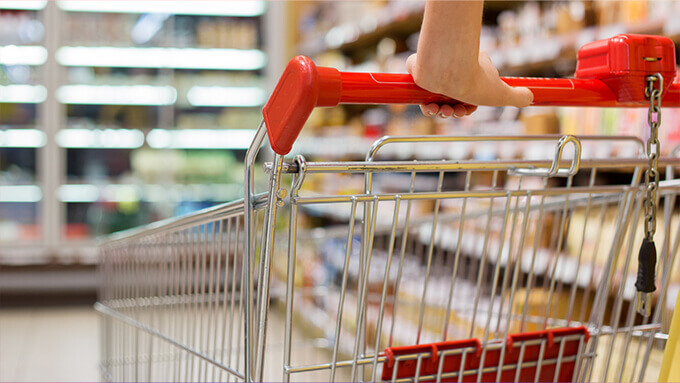
Hub and Spoke cartel is a type of violation that is not clearly defined and regulated under Law No. 4054 on the Protection of Competition (“Law No. 4054”). Decisional practices of foreign competition authorities, particularly the UK Competition and Markets Authority’s decisions (“CMA”), are instructive concerning...

The Competition Board ("Board") made an addition to its line of decisions on resale price maintenance with its decision on Sunny Elektronik Sanayi ve Ticaret A.Ş. ("Sunny") . In its decision, the Board thoroughly examined the allegations regarding Sunny's involvement in maintaining resale prices and restricting...
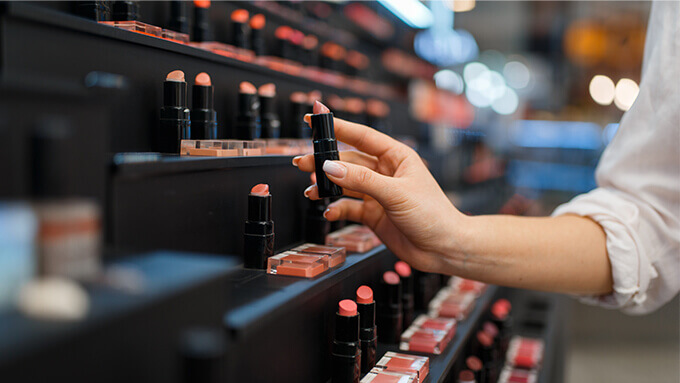
It is observed that the Competition Authority (“Authority”) has recently scrutinized various industries such as fast-moving consumer goods, labor market, pharmaceuticals, and cement. When the reasoned decisions of the Competition Board (“Board”) published in October are examined, it can be seen that the...

Jules Verne says, “Everything on earth has a limited lifespan, nothing that will exist forever can be created by human hands”. Perhaps change is the only constant concept in all our lives. Despite two major world wars and countless periods of crisis, humanity has been undergoing a great change and...

At the meeting of the Fédération Internationale de Football Association (“FIFA”) held on 16 December 2022, the FIFA Council approved the FIFA Football Agents Regulations (“FFAR”). In the FFAR, various amendments have been made, such as the introduction of a maximum service fee limit that football agents are...
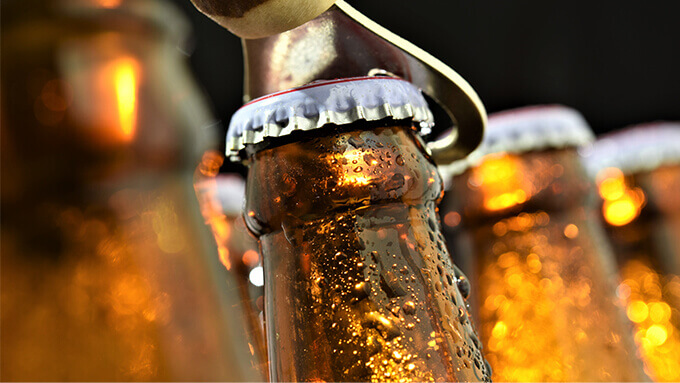
Resale Price Maintenance (RPM) is still considered a hardcore restriction under the recently revised Vertical Block Exemption Regulation (VBER), which means that it cannot benefit from a statutory exemption under Article 101(1) TFEU, unlike certain other types of vertical agreements. However, it has been debated...

In competition law, it is important to accurately determine the concept of undertaking, especially in terms of mergers and acquisitions. Therefore, the concept of economic entity aims to reveal the economic units covered by the undertakings. The relationship between the concept of economic entity and family ties comes...

In these days when the Competition Board (“Board”) frequently imposes administrative fines for preventing on-site inspections and both the Competition Authority (“Authority”) and undertakings take legal and technical measures regarding on-site inspections, a striking development has occurred. In its decision...
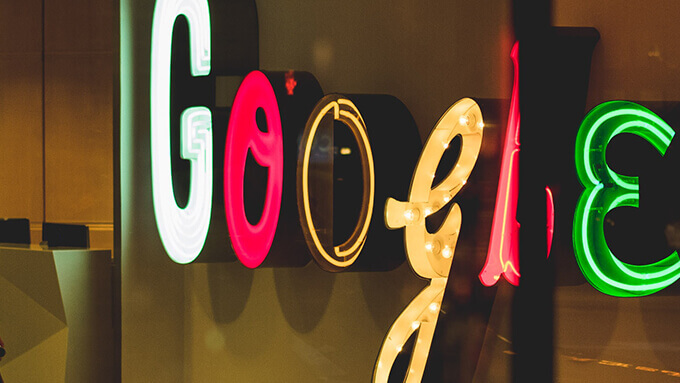
Online advertising has become an important source for businesses for promoting products and services and meeting consumers, as a result of the rapid development of information technologies and increase in the use of internet. Delivering targeted messages to consumers at the right time through the digital...

Selective distribution systems refer to a type of distribution system in which suppliers commit to selling the contracted goods or services directly or indirectly to distributors selected based on specified criteria, while the distributors commit not to sell the said goods or services to unauthorized...
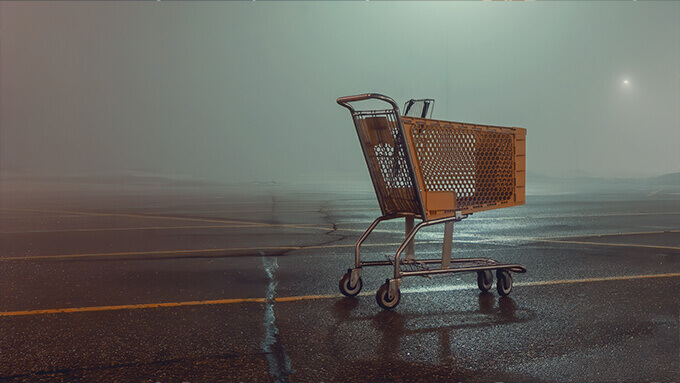
Fast-moving consumer goods is undoubtedly one of the sectors that the Competition Authority has been working most intensively since the COVID 19 pandemic. Among the most important developments of this period was the Sector Inquiry initiated on Fast Moving Consumer Goods (“FMCG”) Retailing...

In the decision of the Constitutional Court ("Constitutional Court" or "Court") dated 09.11.2022, numbered 2020/67 E. 2022/139 K. (the "Decision"), the annulment of certain articles of the Law Amending the Law on the Protection of Competition No. 4054 ("Law No. 7246") was requested...

In Turkish competition law, certain types of mergers and acquisitions are subject to Turkish Competition Board’s (“Board”) approval in order to gain legal validity. Pursuant to Article 7 of the Law No. 4054 on the Protection of Competition (“Law No. 4054”), the Board is competent to define mergers and acquisitions...

Recently, the Competition Board (the Board) had imposed administrative fines on banks and financial institutions for failing to respond to the request for information within the scope of a preliminary investigation.[i] The request for information that lays the groundwork for the administrative fine imposed by...

Amazon, a world-famous company, is an e-commerce company that operates the world’s largest online shopping platform. In the backstage, Amazon is a data-driven company whose retail decisions are mostly driven by automated systems, fueled by the relevant market data. That being said, Amazon has a dual...

The right to make on-site inspections is one of the Competition Board’s (“Board”) most important tools for revealing whether Law No. 4054 on the Protection of Competition (“Law No. 4054”) has been violated. The effective use of this authority is quite important in terms of obtaining fruitful results from...

“Harese” is an interesting Arabic word. There is a thorn that camels love very much in the desert. The camel eats the thorn with great greed. So much so that, its mouth bleeds as it eats, but it doesn't stop eating. The taste of the thorn is mixed with the salty taste of its own blood. This mixed taste drives the camel...

Turkey’s leading pay television service provider, Krea İçerik Hizmetleri ve Prodüksiyon A.Ş. (“Digiturk”), is frequently the subject of complaints made to the Competition Authority (“Authority”). In fact, the Competition Board (“Board”) issues a new decision about Digiturk almost every year. In these decisions...

The French Competition Authority (Autorité de la Concurrence), within the scope of the competition law proceeding initiated upon the complaint of Criteo SA (“Criteo”), accepted the commitments proposed by Meta Platforms Inc., Meta Platforms Ireland Ltd., and Facebook France...

While the scope of Competition Board’s (“Board”) power to conduct on-site inspections has increased with the introduction of Guidelines on Examination of Digital Data during On-site Inspections (“Guidelines”), nowadays the amount of monetary fines imposed on undertakings continue to...

The hub and spoke cartel, which is a relatively new type of violation in terms of Turkish competition law, is defined as the indirect exchange of information between two independent undertakings which are horizontal competitors on the supplier or retailer level, through another undertaking...

The settlement mechanism has only recently been introduced to Turkish competition law practice. It entered into force with the amendment made to the Law on the Protection of Competition (“Law”) numbered 4054 on 16.06.2020, and has been in effect for less than two years. In this relatively...

Due to their increasing share in the economy and rapid growth rate, e-marketplace platforms have come under the increasing scrutiny of the Turkish Competition Authority (“Authority”) as well as many competition authorities around the world...

Pursuant to the Amendment Communiqué Concerning the Mergers and Acquisitions Requiring the Competition Board’s Approval (“Amending Communiqué”) published in the Official Gazette dated March 4th, 2022 and numbered 31768, certain amendments have been introduced...

The Competition Board (“Board”) has recently published a reasoned decision in which it evaluated BSH Ev Aletleri Sanayi ve Ticaret A.Ş.’s (“BSH”) request for negative clearance or exemption with regard to its practice of prohibiting authorized dealers from making sales through online marketplaces...

Shahmaran, a Mesopotamian myth, is believed to take place in Tarsus. According to the myth, the shah of snakes is the immortal and omniscient "Shahmaran." Shahmaran is described as a beautiful woman living in her cave with her snakes...


During the COVID-19 pandemic, competitive concerns about the pricing behavior of chain markets, manufacturers, and wholesalers engaged in the retail trade of food and cleaning supplies led to an investigation by...

When the past decisions and the recent decisions of the Competition Board (“Board”) are examined, a significant increase can be observed in the number of decisions where the Board found hindrance or obstruction of on-site inspections. This situation shows that...
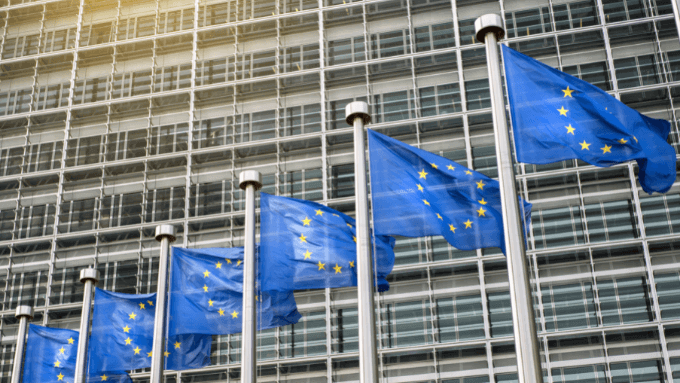
The European Commission began investigating the collusive behavior of Credit Suisse, UBS, Barclays, RBS, and HSBC in the Foreign Exchange (forex) spot trading market in 2019. With the recent press release dated 02.12.2021, the Commission announced that the case is now closed...


Digitalization, in particular, necessitates the rewriting of competition law rules. Competition law is at the center all questions regarding e-commerce and digital platforms. The aforementioned platforms, which have become prominent due to innovations in...
















































